One man’s trash is another man’s treasure – and that’s the way it is for nearly 100,000 Israelis, thanks to a new app.
They’re getting discounts and coupons on anything from surfing and rock climbing lessons to online eco-friendly clothing and beauty stores, just by filming themselves properly disposing of litter they find outside.
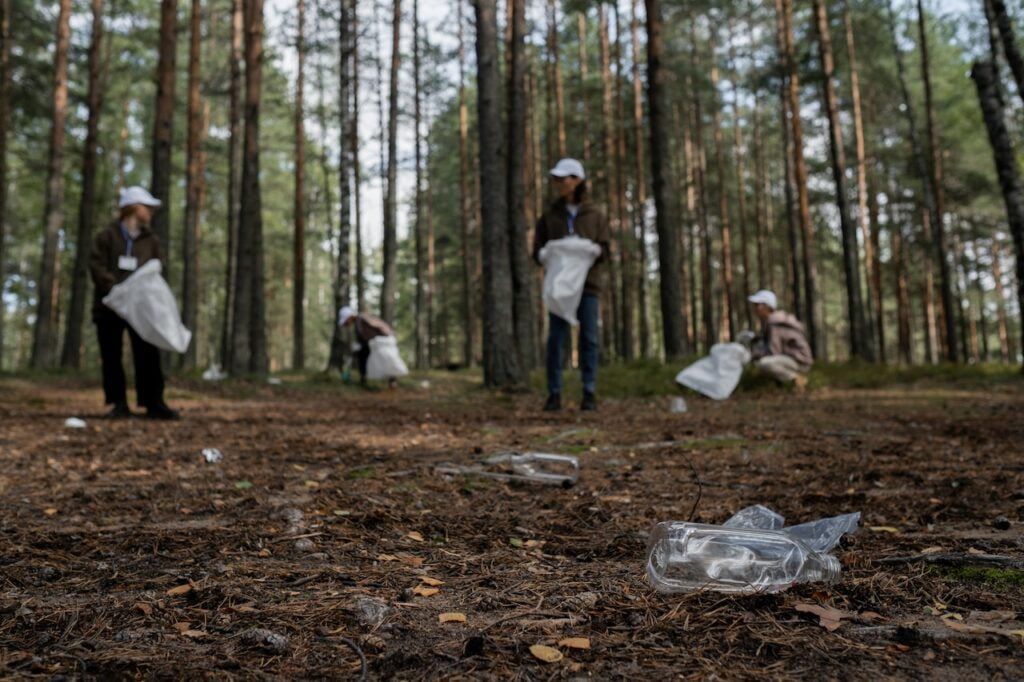
“We price trash with virtual coins, which can later buy you food, drinks, and recreational activities with local and online businesses,” says Adam Ran, CEO of CleanCoin Technologies, an app that was launched just a year ago.
“Our municipalities aren’t able to budge people – not even a little – to be more sustainable. What we provide is the tools, information and the incentive in order to get people involved.”
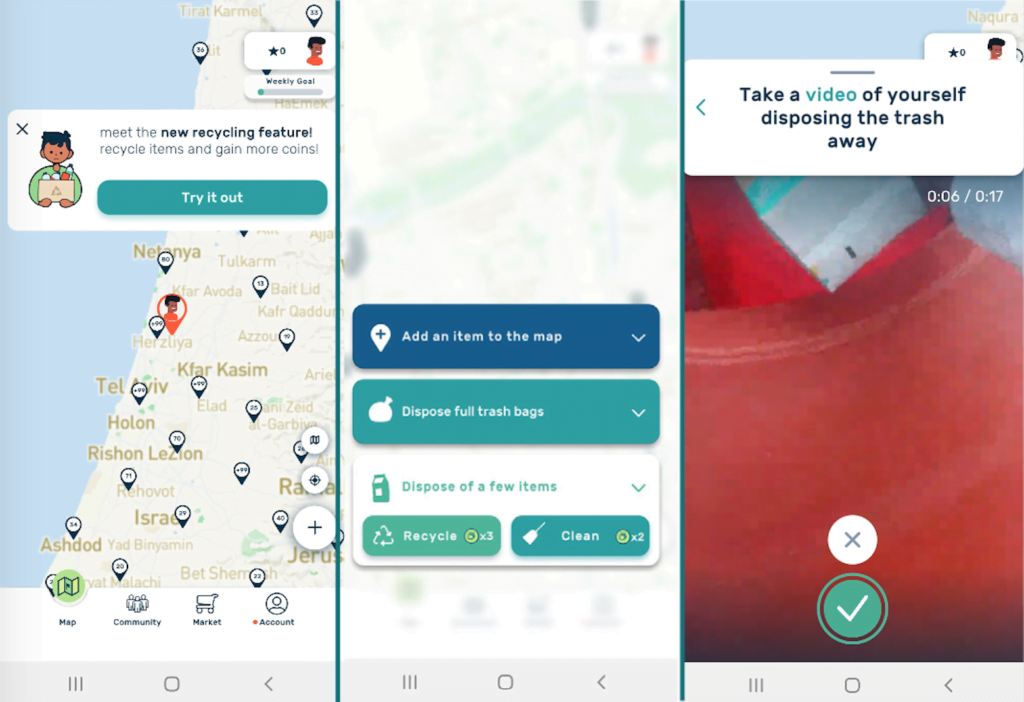
Every time a user films themselves disposing of a piece of litter in a trash can or in the correct recycling bin, they earn a “clean coin”. If they collect enough trash to fill an entire bag, they’ll earn around 10 coins.
Their filmed contributions are approved as genuine (usually within four days) by a combination of AI, fellow users and annotators from the company.
Users can then spend their accumulated coins on coupons and discounts in the app’s marketplace. They include rewards like a free night at the Abraham Hostel chain, deliveries of fresh vegetables, eco-friendly clothing and accessories, and various recreational activities from local businesses. Soon, users will also be able to donate their coins to good causes.
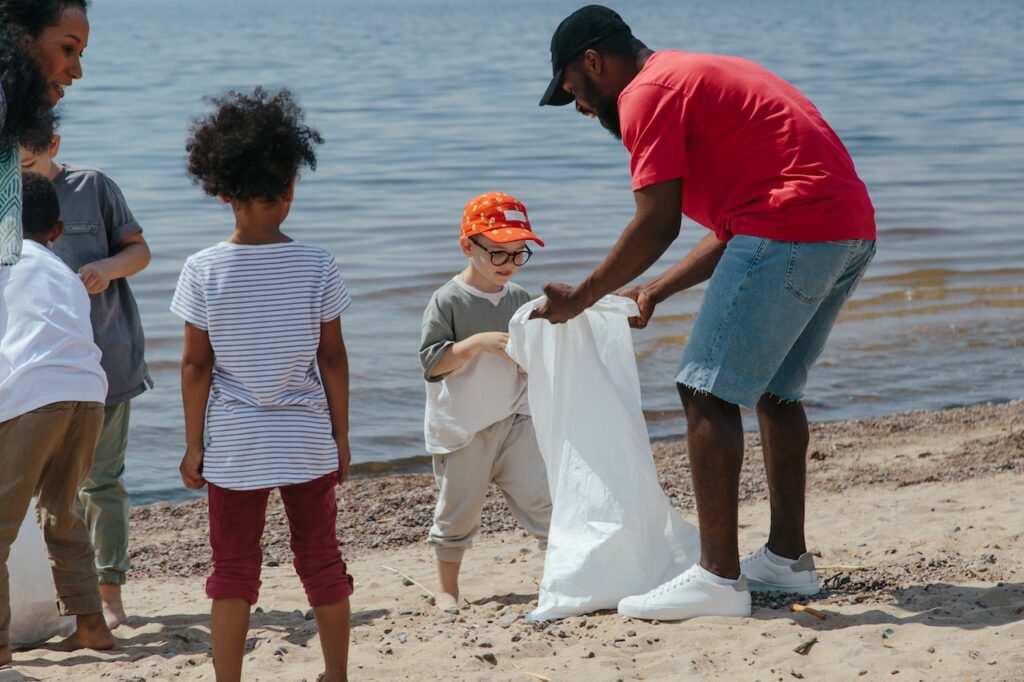
“Every person wants something else, so we try to appeal to everyone,” says Ran.
So how does a company like CleanCoin turn a profit if it’s effectively giving away money?
Municipalities and recycling corporations pay CleanCoin, whose users dispose of trash for free, which the company implies is cheaper than employing people to do so. “By utilizing CleanCoin’s platform, clients can optimize their waste collection and recycling efforts, leading to significant cost savings and a more sustainable operation,” says Ran.
CleanCoin also earns a percentage of each transaction made through its app. Business owners who offer the discounts to app users benefit by being able to tap into a specific segment of the population, specifically those who care about the environment and about making eco-friendly purchases and who are likely to become regular paying customers.
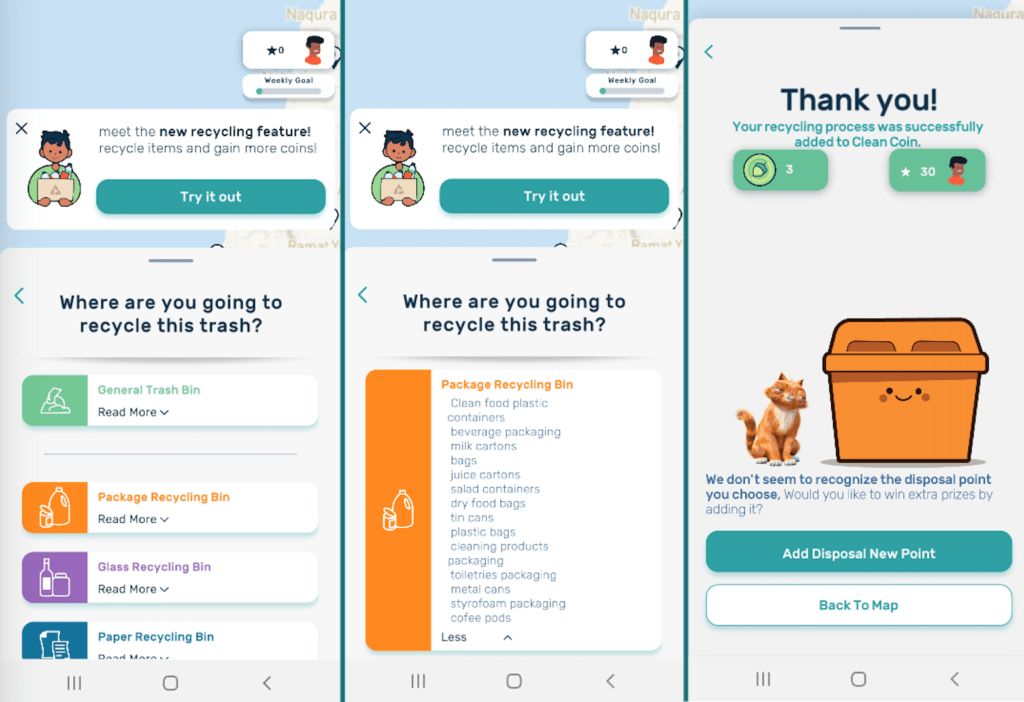
This explains why just two months after being launched, CleanCoin already has 40,000 active users and now has 100,000.
I tried the app out, and filmed myself taking a couple recyclable cartons of soy milk to a nearby orange bin (which in Israel is used to recycle cartons and plastic bottles).
It was a little embarrassing at first filming myself, and CleanCoin’s app interface is a little on the clunky side, but I can definitely see myself using it again… and hopefully getting a discount or two.
Sign up for our free weekly newsletter
SubscribeThe app can increase recycling engagement among all ages, but its marketing efforts are mostly focused on children.
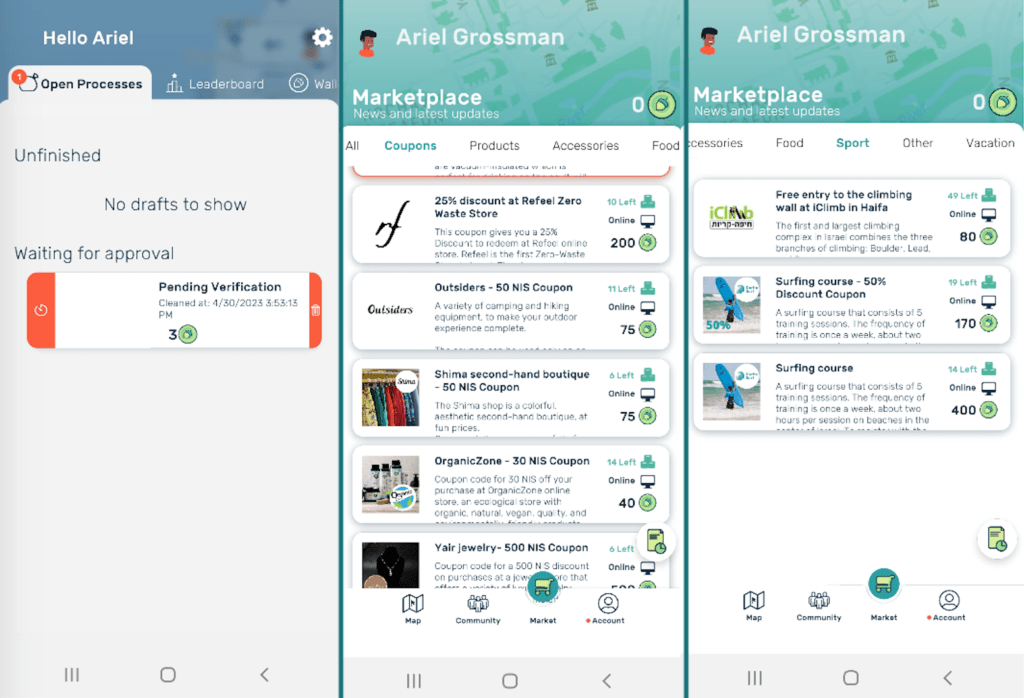
Earning a virtual allowance is a great incentive for them to keep throwing away trash and properly recycling containers and cartons.
But beyond that, says Ran, kids are more likely to adopt new technologies, and they have more time on their hands than their parents. So for them, the app can have the greatest impact, and serve as an educational tool that may remain with them even after they’ve stopped using it.
For this reason, CleanCoin is involved with Israeli youth movements, gives talks at schools, and provides educational aids to schools to convey the importance of recycling to kids.
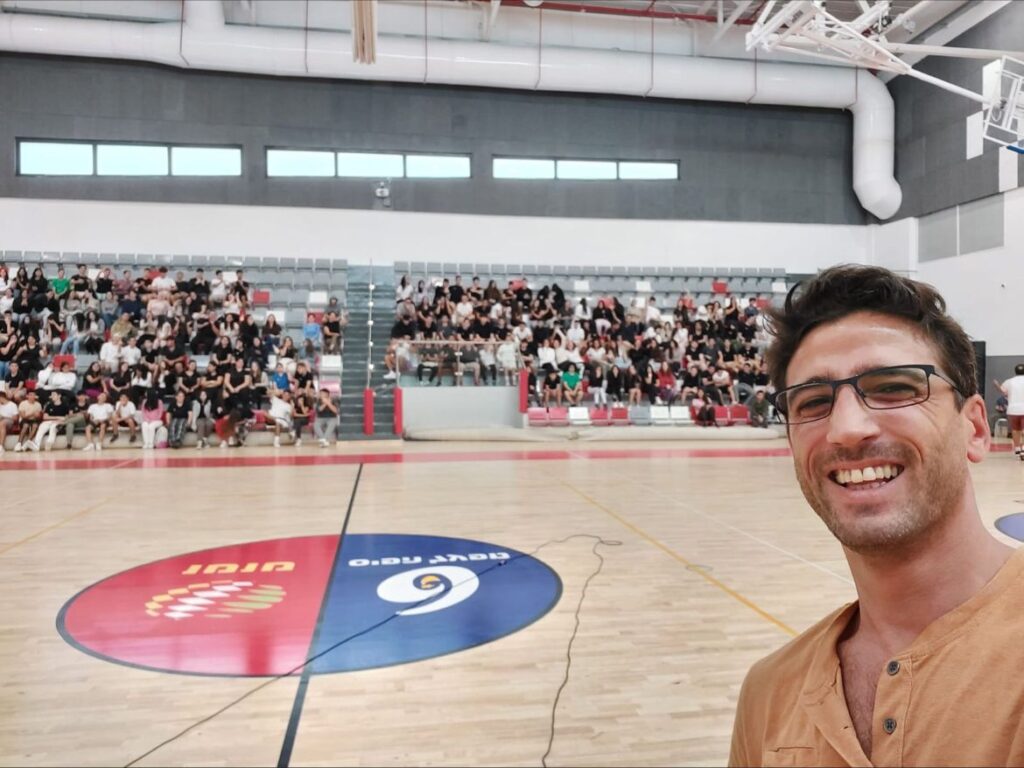
Ran really believes an app like this can make a difference. “When people see someone cleaning up in the street, they feel uncomfortable not helping out,” he says.
He shares an example of a day out with his family at a nature reserve in Emek Hefer, central Israel. The creek and the trail were strewn with litter, so he started cleaning it up. Within minutes, 30 people were cleaning together, and the area was soon spotless.
“Just 10 minutes before, it was filled with trash. That’s why I believe this app can have a societal effect. When you see people doing something good, it’s hard not to join in.”
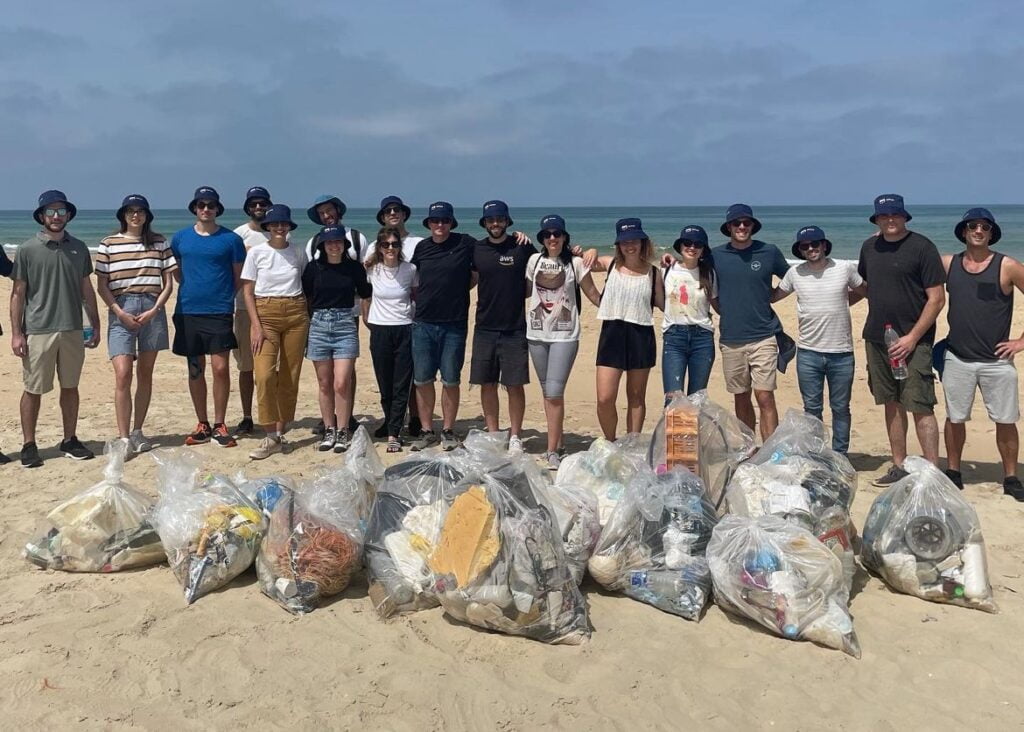
Of course, there’s always the concern that users will cheat the system to reap its rewards. The app uses AI to prevent fraud by calculating whether a user found a reasonable amount of trash that is expected to be found in the area they’re operating in, how many times they reported trash sightings within a specific time frame, and how much time has passed between each video they sent in.
The AI was trained with millions of frames from video files of people throwing out trash, and annotators within the company are also constantly verifying portions of the data to make it smarter. Ran expects the approval process to be cut down to a minute and a half by CleanCoin’s next update.
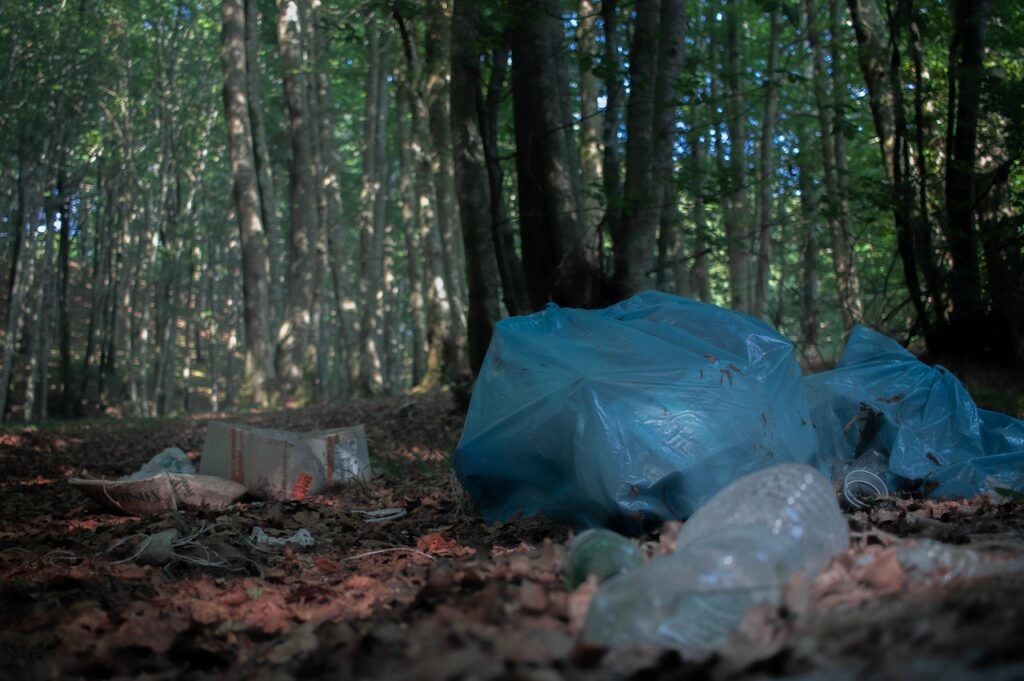
Eventually, the app will distribute coins based on the type of trash a user picks up, and the distance between the litter’s location and the nearest trash can or recycling bin, rather than rewarding users based on quantity alone.
“For example, picking up 50 cigarette butts might sound like a small amount that you can hold in your hand, but it actually takes a lot of effort,” Ran explains. “We’re gonna price it highly because this kind of litter does a lot of damage, and can be swallowed by any fish, and travel up the food chain.”
CleanCoin will soon be launched in Niagara, Canada, which has a population of 500,000. The app’s future targets include New York and the United Kingdom.
Related posts

Harnessing Our Own Bodies For Side Effect-Free Weight Loss

Israeli Device Is New, Drug-Free Solution For Men Coping With ED
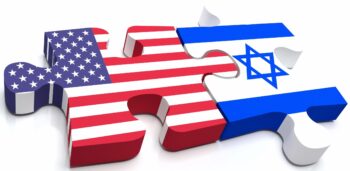

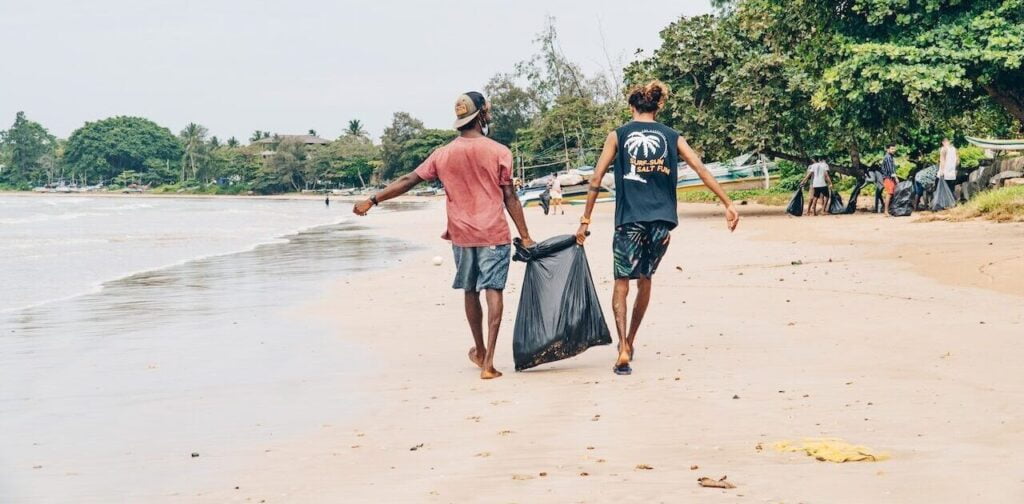


Facebook comments